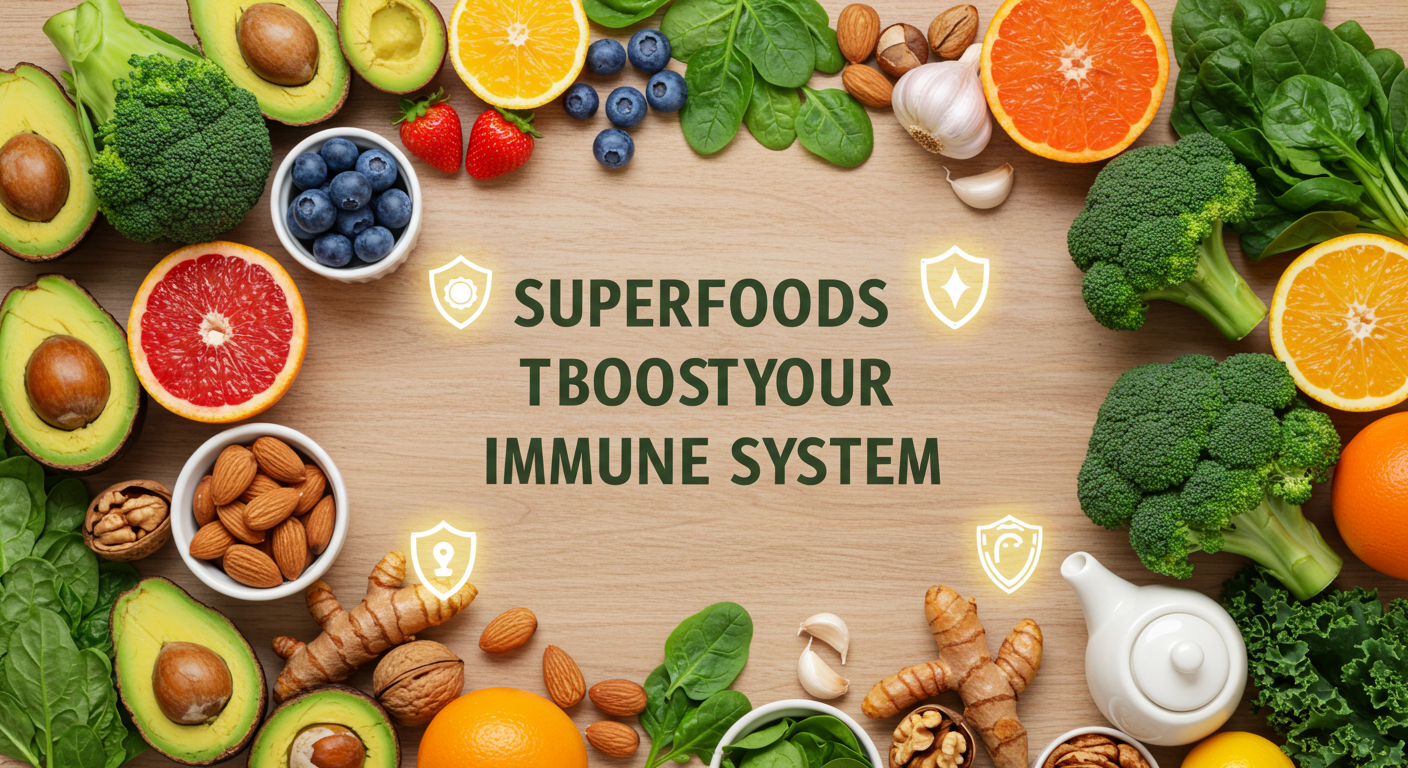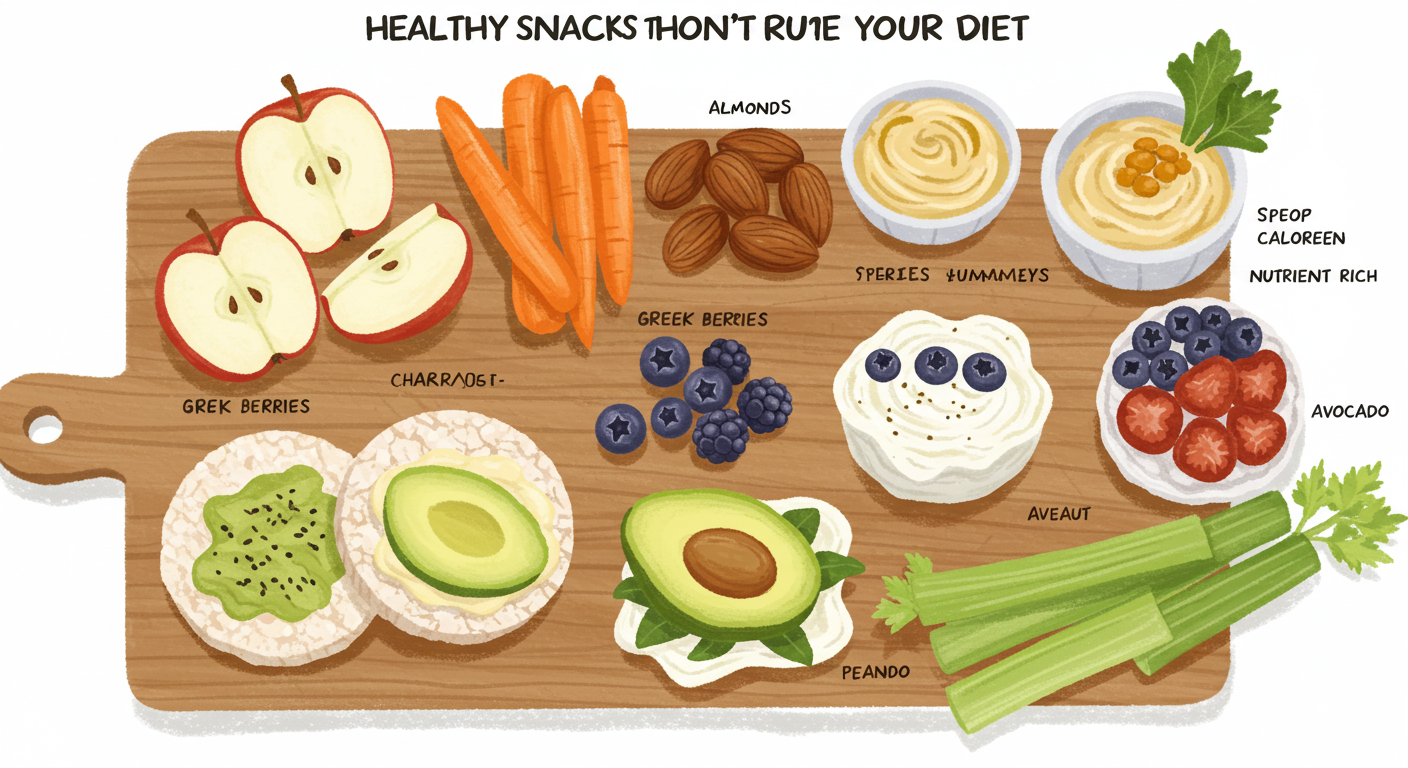Power Foods for a Stronger Defense
I used to catch every cold that went around, my body struggling to fight off sickness until I learned how certain foods could be immune boosters. Berries like blueberries, blackberries, goji, and açai are nutrient packed sweet treats loaded with vitamins and nutrients that give my immune system a boost. I toss these morsels into my yogurt or smoothie for a healthy snack, avoiding sugary desserts. Citrus fruits—oranges, grapefruits, tangerines, lemons, and limes—pack high levels of vitamin C to fight infection by supporting white blood cells. I eat them whole or add their juice to my food for a tangy regular diet addition. A well-balanced diet full of these nutritious foods is my defense against chronic conditions like heart disease, obesity, and diabetes, keeping my body’s immune system strong.
Fish oil from fish like salmon, tuna, or mackerel is rich in Omega 3 fatty acids, which increase activity in white blood cells to fight infection while also supporting my heart and brain. I love a warm bowl of poultry like chicken soup, not just for the soul but for its vitamin B-6 and zinc, which reduce inflammation and aid in the creation of red blood cells for a coordinated response to threats. Leafy greens such as spinach, kale, and collard greens are nutritional powerhouses with antioxidants, beta carotene, and vitamin C, benefiting my gut and helping my body fight disease. Brightly colored vegetables like red peppers and carrots offer even higher levels of vitamin C and beta carotene, boosting my immune system, eyes, and skin. These foods don’t cure or prevent disease alone, but they impact my well-being and keep my body at its best.
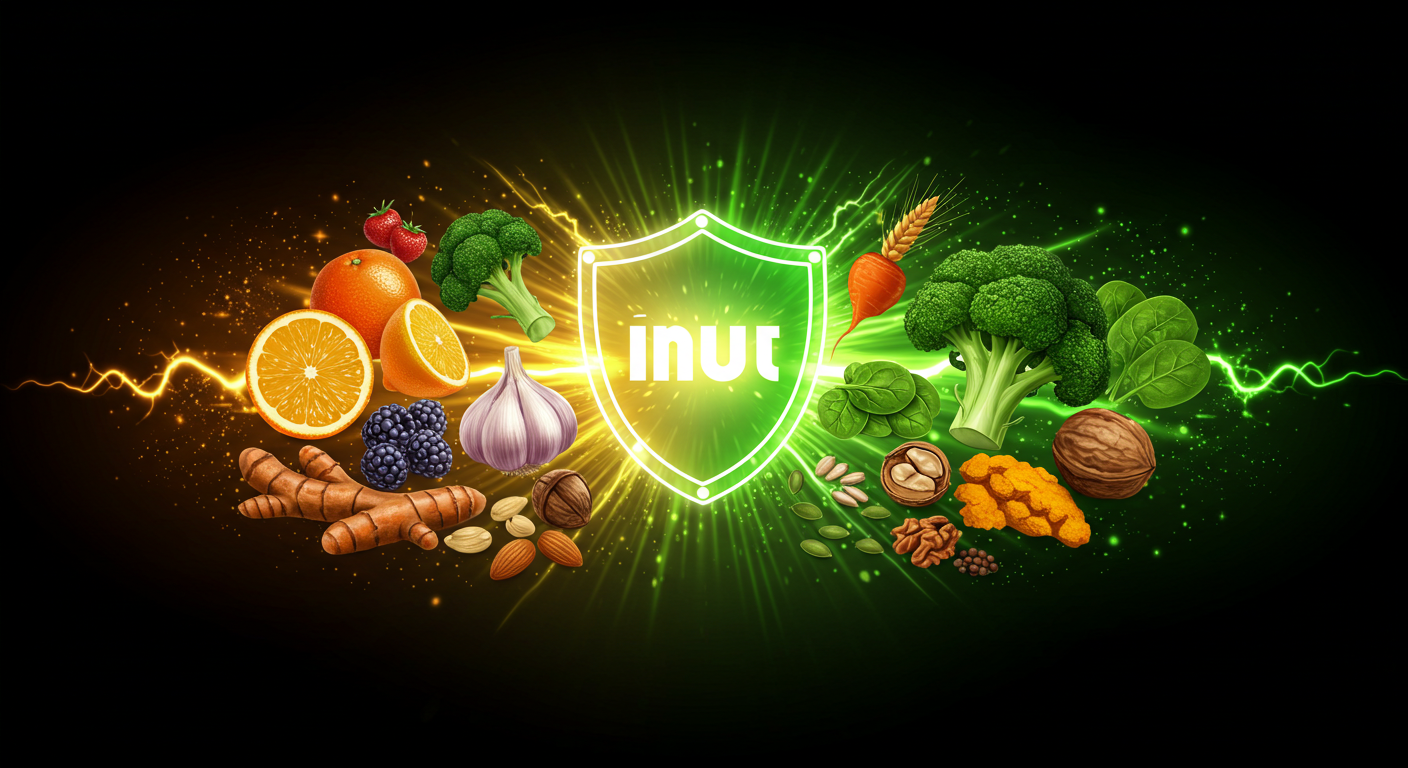
I sprinkle nuts like almonds and walnuts or seeds like sunflower on my salads for an energy-boosting dose of vitamins and minerals like B-6, magnesium, phosphorous, and selenium to regulate and maintain my immune system. Spices such as garlic, ginger, and turmeric have ancient immune-boosting properties, so I’m not shy about spicing up my dishes to fight infection. Yogurt with live and active cultures and vitamin D helps stimulate my immune system—I sweeten it naturally with honey or fruit like berries for an additional boost, avoiding added sugar brands. Olive oil, a staple in the Mediterranean diet, is a healthy fat that reduces inflammation and supports my heart, brain, and immune system. My regular diet includes these nutrient dense foods, and I’ve noticed fewer illnesses like the flu since making them a habit.
To keep my immune system in top shape, I pair these healthy options with healthy lifestyle choices. I exercise regularly, aiming for 30 minutes a day, five times a week, mixing cardio and strength training. I don’t smoke, as quitting smoking is one of the best things for my body, and I manage stress to prevent chronic stress from weakening my immune system. Recommended vaccines for flu, pneumonia, and COVID-19 help my body fight common illnesses, and I stay up to date on them. I drink alcohol in moderation, as it’s a depressant with far-reaching effects, and I manage my weight to avoid extra weight stressing my systems. Proper sleep—seven to nine hours a night, per the CDC—is critical for healthy adults, as sleep quality directly impacts my immune system. Practice good hygiene, like washing my hands thoroughly and often, is the simplest yet effective way to stay healthy. These habits make my body ready to defend against threats like the flu virus or even cancer, where immunotherapy uses my body’s immune system to attack cancerous cells.
Nourish Your Body for Stronger Immunity
I used to feel run-down during flu season, but adding immune-boosting nutrients like beta-carotene and vitamin A to my diet changed everything. Carrots, spinach, kale, apricots, sweet potato, squash, and cantaloupe are packed with beta-carotene, which converts to vitamin A, an anti-inflammatory vitamin that helps my antibodies respond to toxins and viruses. Pairing these with healthy fats like avocado or olive oil in a salad or traditional hummus boosts absorption, creating an immune-boosting combination. I make my plate colorful with these whole food sources, avoiding processed foods and supplements, as my body uses nutrients better from fruits and vegetables. A balanced diet supports my overall health and wellness, keeping my immune system ready to fight the COVID-19 outbreak or other infections.
Vitamin C from grapefruits, oranges, tangerines, sweet red pepper, broccoli, strawberries, kale, and kiwifruit is key to increase white blood cell production for fighting infection. I love a cup of green tea—hot, cold, or as matcha powder—for its antioxidants and amino acids that enhance immune system function and produce germ-fighting compounds in T-cells, which also reduces inflammation. Vitamin E, a fat-soluble vitamin found in nuts, seeds, avocado, and spinach, helps regulate and support my immune system function, while vitamin D from salmon, canned tuna, egg yolks, mushrooms, or just 13-15 minutes of sunshine three times a week helps regulate my body’s immune response. These foods make my meals a variety of nutrients, fueling my body to fight off disease and stay healthy.
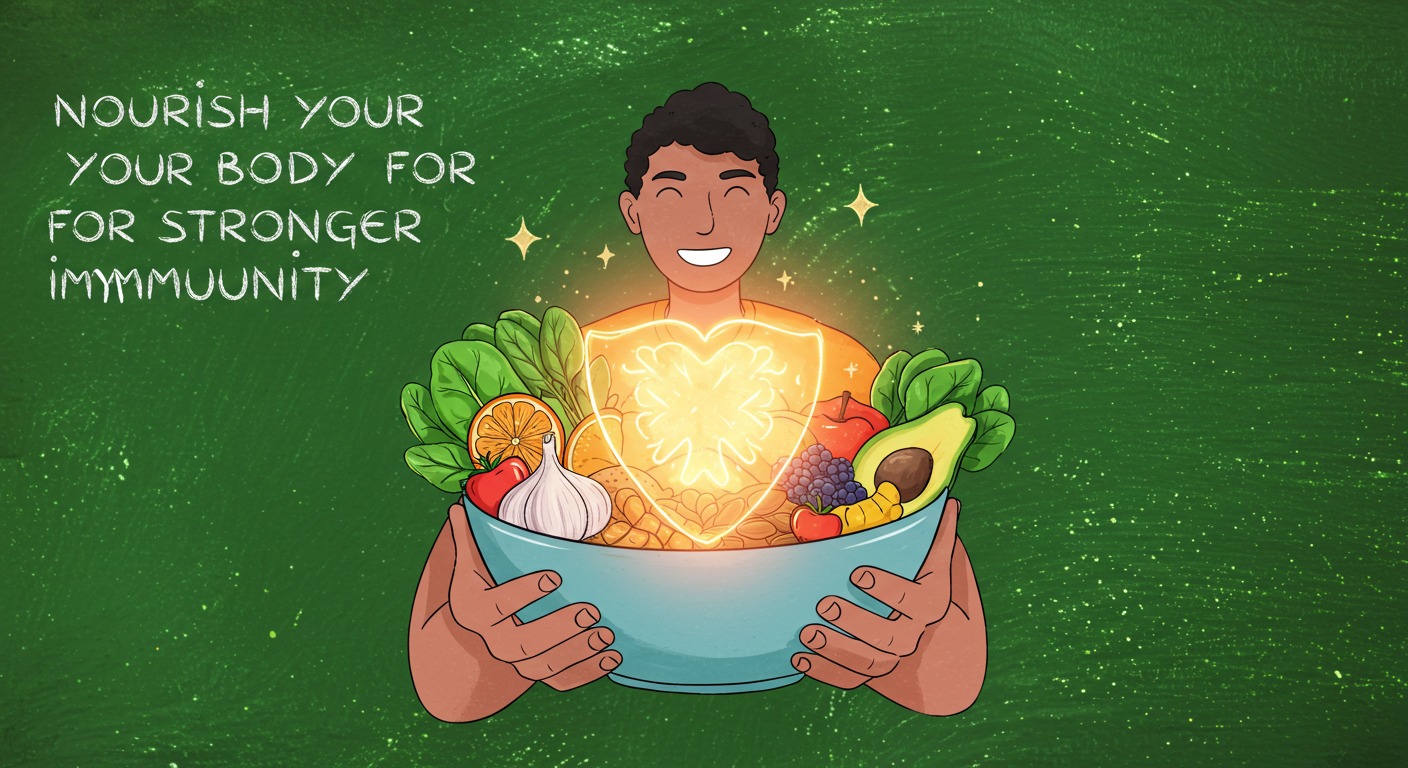
For my gut, I turn to probiotics in yogurt, kombucha, sauerkraut, kimchi, pickles, tempeh, fermented soybeans, and cheese with live cultures to stimulate my immune system and create a barrier against harmful bacteria and fungi. The microbiome or good bacteria in my digestive system helps process nutrients, making it a powerhouse for immunity. Garlic is my go-to, with compounds that stimulate cells to fight germs and boost virus-fighting T-cells, keeping my immune system at full strength by reducing stress hormones. Vitamin B-6 from chicken, turkey, cold-water fish like salmon and tuna, chickpeas, bananas, fortified breakfast cereal, or nutritional yeast supports the formation of healthy red blood cells and maintains my lymphatic system. Zinc, a mineral my body doesn’t store or produce, comes from oysters, shellfish like crab, clams, lobster, mussels, poultry, red meat, beans, fortified cereals, or breads, with animal-based foods offering the highest absorption to help immune system cells function.
Water is my secret weapon, as proper hydration helps produce lymph, which carries white blood cells and immune system cells through my body. I eat foods with high water content like cucumbers, watermelon, and celery, or sip mint-infused water, cucumber, or lemon in my green tea for an immune system powerhouse beverage. If drinking plain water feels tough, these options make it easier. I also practice mindful eating, staying present and focused to enjoy the taste, texture, and aroma of my food, which helps me reconnect to what fuels my body and decrease stress that can adversely affect my immune system. Sitting down with friends or family members to consider the journey of my food to my plate makes eating a pleasure, and pairing it with enough sleep, exercising daily, and an active role in my health ensures my immune system stays strong.
Top Foods to Strengthen Immunity and Fight Cancer
I used to worry about frequent colds and the looming threat of chronic diseases like cancer, but adding cruciferous vegetables like broccoli, cauliflower, Brussels sprouts, kale, and turnips to my meals transformed my health. These vegetables are rich in sulforaphane, a compound with anticancer properties that activates enzymes to detoxify carcinogens and inhibit cancer cell growth, helping lower the risk of breast, colon, and prostate cancer. Their high levels of vitamins, minerals, and fiber support my immune function and overall health, while a balanced diet full of nutrient-rich foods keeps inflammation at bay, unlike processed foods high in refined sugars, unhealthy fats, or refined carbohydrates that promote chronic inflammation and increase cancer risk. I make my plate colorful with these superfoods, knowing no single food can guarantee good health, but variety is essential.
Berries like anthocyanins-rich fruits pack antioxidants, flavonoids, and vitamin C to protect cells from harmful free radicals, reducing inflammation and lowering the risk of cancers like breast, colon, and prostate cancer. I toss them in yogurt, a source of probiotics and beneficial bacteria that support gut health and immune regulation, helping control inflammation and possibly reducing cancer risk. Nuts like almonds and walnuts, plus seeds like flaxseeds and chia seeds, offer healthy fats, fiber, plant protein, vitamins, minerals, and antioxidants to support immune function and reduce inflammation, potentially cutting the risk of breast and colon cancer. Whole grains such as oats, brown rice, quinoa, and barley are loaded with fiber, phytochemicals, and nutrients that regulate blood sugar levels, support a diverse gut microbiota, and promote a healthy digestive system, offering protective effects against colorectal cancer.
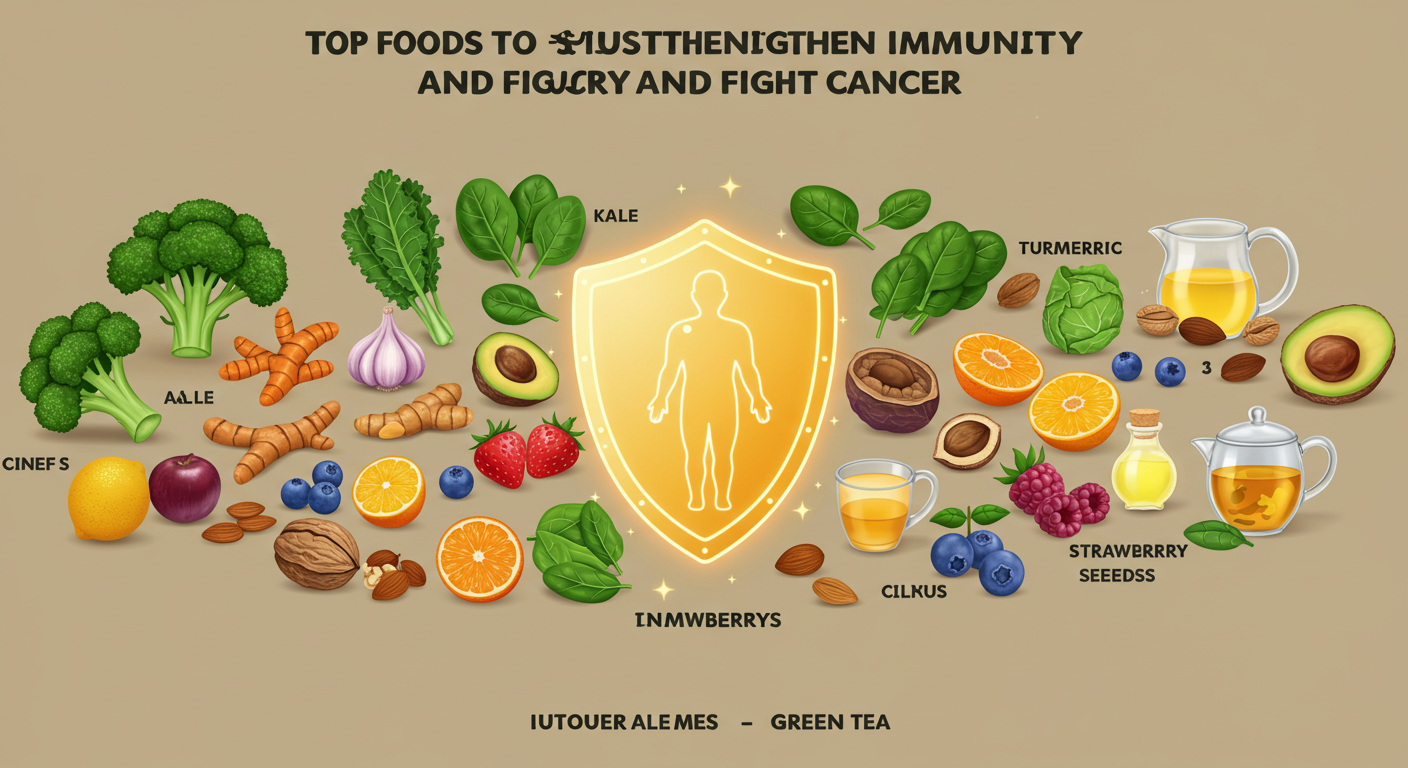
Fatty fish like salmon, tuna, sardines, and anchovies are my go-to for omega-3 fatty acids, including EPA (eicosapentaenoic acid) and DHA (docosahexaenoic acid), which have anti-inflammatory properties that reduce inflammation and may inhibit the growth and spread of cancer cells in breast, prostate, and colorectal cancer. Garlic and onions, with sulfur-containing compounds like allicin, have immune-boosting and anticancer properties, helping activate immune cells and reduce the risk of stomach, colorectal, and prostate cancer. I sip green tea, packed with catechins like epigallocatechin gallate (EGCG), for its antioxidants that protect cells from oxidative damage and reduce inflammation, supporting my body in fighting off disease. Extra virgin olive oil, rich in monounsaturated fats and antioxidants like oleocanthal and oleuropein, offers anti-inflammatory and anticancer properties, lowering the risk of breast and colorectal cancer. These foods are densely packed with essential nutrients, making them superfoods with high nutritional content.
I avoid cooking methods like grilling, frying, or charbroiling meats at high temperatures, as they form carcinogenic compounds like heterocyclic amines (HCAs) and polycyclic aromatic hydrocarbons (PAHs), which increase the risk of colorectal, pancreatic, and prostate cancer. High consumption of red meat and processed meats with naturally occurring or added hormones from livestock production can drive hormone-related cancers like breast and prostate cancer, while diets high in refined sugars and carbohydrates may lead to insulin resistance, type 2 diabetes, and insulin-like growth factors (IGFs) that encourage cancer cell proliferation, raising the risk of pancreatic, liver, and endometrial cancer. By choosing fresh produce at dining halls or dining centers on campus, I ensure my meals include healthy choices that promote satiety, lower cholesterol, and reduce obesity and weight gain, which can otherwise create an environment that supports cancer development. My healthy lifestyle, with variety in nutrient-dense foods, keeps my immune system strong and my body ready to fight off chronic diseases like cancer.
Nutrient-Rich Foods for a Healthier You
I used to catch frequent colds every winter, but learning how specific foods can boost my immune system changed my life. Berries like strawberries, blackberries, blueberries, raspberries, cranberries, and blackcurrants are rich in vitamins, minerals, and phenolic compounds, making them immune-boosting powerhouses. A 2021 review notes their high nutritional content supports body systems, so I aim for an adult portion of fruit—about 80 grams or seven strawberries that fit in the palm of my hand—to incorporate into my diet. A balanced diet with a wide variety of foods is key to maintaining good health, as no single food alone can boost the immune system. My meals now include these nutrients to fight off pathogens like viruses and bacteria that cause infection or disease.
Leafy green vegetables such as broccoli, kale, spinach, bok choy, mustard greens, and spring greens are loaded with vitamin A, vitamin C, and B vitamins like B1, B2, B3, and B12, which influence a strong immune system. I eat a portion of leafy greens—like 2 broccoli spears, 2 heaped tablespoons of cooked spinach, or 4 heaped tablespoons of cooked kale—to support my body. Oily fish like salmon, tuna, and pilchards provide omega-3 fatty acids, vitamin A, and vitamin D, which play a role in immune system function. I aim for one portion of 140g of cooked oily fish per week, but for non-fish eaters, nuts, seeds like flaxseed, or fortified foods like cereals, yogurt, and soy beverages also offer omega-3 fatty acids, vitamin E, antioxidants, selenium, and fat-soluble B vitamins. A handful of almonds or a tablespoonful of sunflower seeds adds an immune-boosting punch to my diet.
Fermented foods like kimchi, sauerkraut, and kefir, a fermented drink with live cultures of beneficial bacteria, contribute to my immune system by increasing antioxidant activity and fighting bacteria, as a 2023 article suggests. Fermented dairy products like yogurt contain probiotics that benefit health, though research, including animal studies and laboratory tests, notes more human trials are needed to understand how kefir may prevent disease in humans. Green tea, packed with polyphenols and substances that regulate parts of the immune system per a 2022 comprehensive review, is my go-to drink. Turmeric, a yellow spice used in cooking, contains curcumin, a compound with antioxidant and anti-inflammatory effects that modulate immune cells like B cells. I add 1 g of ginger root to my dishes, desserts, or teas daily, as a 2024 article highlights its antibacterial, antiviral, antioxidant, and antiinflammatory benefits, keeping my immune system ready to fight off illnesses.
I savor a small piece of dark chocolate, which a 2022 article says contains bioactive components like polyphenols, flavonoids, vitamins, minerals, zinc, selenium, and B vitamins to modulate the immune system, though it’s high in calories and saturated fat, so I eat it in moderation. To keep my immune system stronger, I follow lifestyle strategies like avoiding smoking, exercising regularly, maintaining a healthy weight, avoiding alcohol or drinking in moderation, getting enough sleep, minimizing stress, and practicing correct handwashing and oral hygiene. I incorporate 5 portions of fruit and vegetables daily, high fiber starchy foods like potatoes with skin on, wholegrain pasta, wholegrain rice, or wholemeal bread, plus beans, pulses, fish, eggs, proteins, dairy or dairy alternatives, and unsaturated fats in smaller amounts. I drink plenty of fluids to provide my body with a wide range of nutrients. If I’m concerned about my immune system health or frequent colds, I check with my doctor, but my healthful balanced diet and lifestyle factors keep me feeling healthy.






